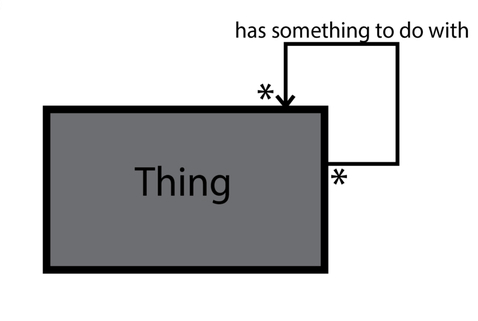I’m an “anti-realist” in the sense that my world view (in the header by-line, the manifesto and anywhere else in the blog) is epistemological – about what we can know about the world, to the extent that what the world out there really is is NOT what really matters. That is I’m not concerned with correspondence between knowledge and the world out there being a fundamentally true, rather that it is both pragmatic and reasonable. As I noted quite recently, reasonable, of course, includes having a reasonable ontology of what exists in the world [not just a logical, mathematical theory of it], even if we accept that ontology is our deemed model of what exists rather than any absolute truth. [For substantial meaning, matter matters; neither epistemology nor ontology precedes or exists without the other.]
In Levi Bryant’s The Democracy of Objects, he points out
As a consequence of the two world schema [the epistemological and correspondence anti-realisms], the question of the object, of what substances are, is subtly transformed into the question of how and whether we know objects. The question of objects becomes the question of a particular relation between [subjects] and objects [….]
On the one hand we have the pro-science crowd that vigorously argues that science gives us the true representation of reality. It is not difficult to detect, lurking in the background, a protracted battle against the role that superstition and religion play in the political sphere. Society, at all costs, must be protected from the superstitious and religious irrationalities that threaten to plunge us back into the Dark Ages.
On the other hand, there are the social constructivists and antirealists vigorously arguing that our conceptions of society, the human, race, gender, and even reality are constructed. Their worry seems to be that any positive claim to knowledge risks becoming an exclusionary and oppressive force of domination, and they arrive at this conclusion not without good reason or historical precedent [….]
As always, the battles that swirl around epistemology are ultimately questions of ethics and politics. [….] Questions of knowledge are not innocent questions. Rather, they are questions intimately related to life, governance, and freedom. A person’s epistemology very much reflects their idea of what the social order ought to be, even if this is not immediately apparent in the arid speculations of epistemology.
That is even in our endeavour to avoid SOMism, a subject-object relationalism, even where the relational quality is radically empirical, it is nevertheless useful, necessary to have an ontology of objects, things that exist and participate in the world – static patterns of value in Pirsigian terms – patterns within and across evolved physico-bio-socio-intellectual-cultural levels of complexity. Having a reasonable ontology of objects, is NOT mandating a mereology where all such objects are composed of some fundamental monist substance in any essentially hierarchical or causally reductive way. Objects (patterns) of all scales and complexity participate democratically and that participation is about processes and structures of governance – systems engineering in the broadest sense or literally cybernetics. What Levi proposes is an onticology:
Drawing on the work of the systems theorists and cyberneticians, Bryant argues that objects are dynamic systems that relate to the world under conditions of operational closure. [….] to integrate the most vital discoveries of the anti-realists within a realist ontology that does justice to both the material and cultural. Onticology proposes a flat ontology where objects of all sorts and at different scales equally exist without being reducible to other objects and where there are no transcendent entities such as eternal essences outside of dynamic interactions among objects.
Bryant’s book is available on-line / electronically at the link above. I’ve also bought the paperback to enable a more flexible leisurely read. Hat tip again to David Morey for bringing new material to our attention. Very interesting.
Like this:
Like Loading...

